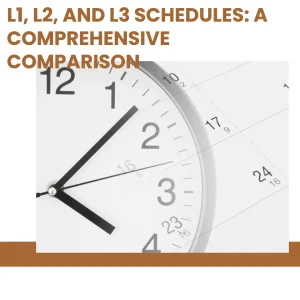Introduction
The ability to navigate change effectively is paramount. Change Management refers to the structured approach to transitioning individuals, teams, and organizations from a current state to a desired future state. It is crucial in project management as it helps mitigate risks, enhances communication, and ensures that projects align with organizational goals. By managing change effectively, project managers can foster a culture of adaptability and resilience, which is essential for achieving successful outcomes in an ever-evolving business environment.
The Project Management Institute (PMI) plays a pivotal role in the professional development of project managers through its various certifications, including the Change Management Certification. PMI is a globally recognized organization that sets standards for project management practices and provides resources for professionals seeking to enhance their skills. The certification is designed to equip individuals with the knowledge and tools necessary to implement change management strategies effectively, thereby improving their overall project management capabilities.
Leadership skills are integral to managing change successfully. Effective leaders inspire and motivate their teams, communicate a clear vision, and foster an environment of collaboration and trust. The PMI Change Management Certification emphasizes the development of these essential leadership skills, enabling aspiring leaders and team managers to guide their organizations through transitions with confidence. By focusing on leadership development, the certification not only enhances individual competencies but also contributes to the overall success of projects and the organization as a whole.
Understanding PMI Change Management Certification
The PMI Change Management Certification is designed to equip professionals with essential skills and knowledge to effectively navigate and implement organizational change. This certification is particularly valuable for aspiring leaders and team managers who seek to enhance their leadership capabilities in the context of project management.
Certification Process and Requirements
To obtain the PMI Change Management Certification, candidates must meet specific eligibility criteria, which typically include:
- Educational Background: A secondary degree (high school diploma, associate’s degree, or global equivalent) along with 60 months of project management experience, or a four-year degree with 36 months of project management experience.
- Change Management Experience: Candidates are required to have a minimum of 8 hours of change management training.
- Examination: After meeting the prerequisites, candidates must pass a comprehensive exam that assesses their understanding of change management principles and practices.
This structured process ensures that certified individuals possess a solid foundation in both project management and change management, making them well-prepared to lead change initiatives effectively [10][12].
Curriculum and Key Topics Covered
The curriculum for the PMI Change Management Certification encompasses a range of critical topics that are essential for effective change leadership. Key areas of focus include:
- Change Management Principles: Foundational theories and concepts that underpin successful change initiatives.
- Leadership Skills: Development of interpersonal communication, negotiation, and influencing skills necessary for engaging stakeholders and motivating teams [1][6].
- Change Implementation Strategies: Techniques for assessing organizational readiness for change, defining roles and responsibilities, and establishing a clear vision and purpose for change [9][10].
- Tools and Techniques: A review of various change management models and methodologies that can be applied in real-world scenarios [11].
This comprehensive curriculum not only prepares candidates for the certification exam but also equips them with practical skills that can be applied in their leadership roles.
Value of PMI Certification in the Project Management Landscape
The PMI Change Management Certification holds significant value in the project management landscape for several reasons:
- Enhanced Leadership Skills: The certification process emphasizes the development of leadership qualities that are crucial for managing change effectively. This includes the ability to communicate a clear vision, engage stakeholders, and reduce resistance to change [7][15].
- Recognition and Credibility: PMI is a globally recognized organization, and obtaining its certification enhances a professional’s credibility in the field of project management. It signals to employers and peers that the individual is committed to professional development and possesses a robust understanding of change management practices [10].
- Increased Success Rates: Organizations that adopt formal change management practices, supported by certified professionals, tend to achieve higher success rates in their change initiatives. This is particularly important as organizational change projects are among the most common types of projects undertaken [14].
The Link Between Change Management and Leadership
In today’s dynamic business environment, the ability to manage change effectively is crucial for leaders and team managers. The Project Management Institute (PMI) Change Management Certification not only equips professionals with essential change management skills but also significantly enhances their leadership capabilities. Here’s how the two are interconnected:
Change Management Practices Require Leadership Capabilities
Effective change management is fundamentally rooted in strong leadership. Leaders are tasked with guiding their teams through transitions, which necessitates a clear vision and the ability to communicate that vision effectively. Change management practices involve:
- Strategic Communication: Leaders must articulate the rationale behind changes, expected outcomes, and the impact on team members. This requires transparency and the ability to foster trust within the team [1].
- Emotional Intelligence: Understanding and managing emotions—both their own and those of their team members—is vital. Leaders need to navigate the emotional landscape of change, addressing concerns and resistance while motivating their teams [10].
- Conflict Resolution: Change often brings about conflict. Leaders trained in change management are better equipped to handle disputes and facilitate discussions that lead to constructive outcomes [10].
Key Leadership Skills Enhanced Through Change Management Training
The PMI Change Management Certification focuses on developing a range of leadership skills that are essential for navigating organizational change. Some of these key skills include:
- Visioning: Leaders learn to create and communicate a compelling vision for change, which is crucial for gaining buy-in from stakeholders [10].
- Storytelling: The ability to tell a compelling story about the change initiative helps in engaging team members and stakeholders, making the change more relatable and understandable [10].
- Active Listening and Feedback: Training emphasizes the importance of listening to team members’ concerns and providing constructive feedback, which fosters a collaborative environment [10].
The Role of Leaders in Facilitating Successful Change Initiatives
Leaders play a pivotal role in the success of change initiatives. Their responsibilities include:
- Championing Change: Leaders must act as advocates for change, demonstrating commitment and enthusiasm that can inspire their teams [6].
- Building a Supportive Culture: By fostering an environment that embraces change, leaders can reduce resistance and encourage adaptability among team members [7].
- Monitoring Progress: Effective leaders continuously assess the impact of change initiatives, making necessary adjustments and providing support to ensure successful implementation [8].
How PMI Change Management Certification Enhances Leadership Skills
The PMI Change Management Certification is designed not only to equip professionals with the necessary tools to manage organizational change but also to significantly enhance their leadership capabilities. For aspiring leaders and team managers, this certification offers a structured approach to developing essential skills that are critical in today’s dynamic work environment. Here are some key leadership skills that are cultivated through the certification process:
- Critical Thinking and Problem-Solving Skills: The certification emphasizes the importance of understanding foundational theories and concepts of change management, which fosters critical thinking. Participants learn to analyze complex situations, identify potential challenges, and devise effective solutions. This skill is vital for leaders who must navigate the uncertainties that accompany change initiatives [11].
- Communication and Stakeholder Engagement: Effective communication is a cornerstone of successful change management. The certification program teaches participants how to engage stakeholders effectively, ensuring that all voices are heard and considered. This includes learning how to articulate change initiatives clearly and persuasively, which is essential for gaining buy-in and support from team members and other stakeholders [13].
- Emotional Intelligence and Adaptability in Leadership Roles: Leaders must possess a high degree of emotional intelligence to manage their teams effectively during times of change. The certification process encourages the development of empathy and understanding, enabling leaders to connect with their teams on a deeper level. This adaptability is crucial as it allows leaders to respond to the emotional and psychological impacts of change on their teams [5][15].
- Strategic Planning and Decision-Making Capabilities: The PMI Change Management Certification equips leaders with the skills to engage in strategic planning and informed decision-making. Participants learn to assess the broader organizational context and align change initiatives with strategic goals. This capability is essential for leaders who must make decisions that not only address immediate challenges but also contribute to long-term organizational success [8][11].
Real-World Applications of Enhanced Leadership Skills
The PMI Change Management Certification is not just a credential; it is a transformative experience that equips aspiring leaders and team managers with essential skills to navigate the complexities of organizational change. This section explores how enhanced leadership skills gained through this certification can be applied in real-world scenarios, showcasing the tangible benefits for professionals in leadership roles.
Testimonials from Certified Leaders
- John Smith, Project Manager at Global Solutions: “Obtaining my PMI Change Management Certification was a game-changer for my career. It not only provided me with a solid framework for managing change but also boosted my confidence as a leader. I learned how to effectively communicate the need for change and engage my team in the process, which has led to more successful project outcomes.”
- Emily Johnson, Senior Team Leader at Innovate Inc.: “The certification taught me the importance of active listening and feedback in leading change. I now approach challenges with a collaborative mindset, which has transformed my team’s dynamics. We are more cohesive and resilient, and our project success rates have improved significantly since I became certified.”
Impact of Effective Change Management on Team Dynamics and Project Outcomes
Effective change management, underpinned by strong leadership skills, has a profound impact on team dynamics and project outcomes. Leaders who are trained in change management principles can:
- Foster Collaboration: By promoting open communication and involving team members in the change process, leaders can create a sense of ownership and commitment among their teams. This collaborative approach leads to improved morale and a more engaged workforce.
- Enhance Adaptability: Certified leaders are better equipped to guide their teams through transitions, helping them adapt to new processes and technologies. This adaptability is crucial in today’s fast-paced business environment, where change is constant.
- Drive Project Success: The application of effective change management strategies directly correlates with project success. Leaders who understand how to manage change can minimize resistance, streamline processes, and ensure that projects are completed on time and within budget.
Conclusion
The relationship between change management and effective leadership is undeniable. Change management certification, particularly from the Project Management Institute (PMI), equips aspiring leaders and team managers with essential skills to navigate the complexities of organizational change. This certification not only enhances one’s understanding of change theories and models but also emphasizes the importance of leading teams through transitions, thereby fostering a culture of resilience and adaptability within organizations.
By pursuing PMI Change Management Certification, individuals can significantly enhance their leadership capabilities. The program focuses on developing a confident approach to strategic change, improving resource utilization, and ensuring on-time project delivery. These competencies are crucial for leaders who aim to inspire their teams and drive successful change initiatives. Moreover, the certification demonstrates a commitment to professional development, which is vital for gaining credibility and respect as a change leader.
For those looking to elevate their leadership skills and make a meaningful impact within their organizations, exploring PMI’s certification programs is a valuable step. The knowledge and strategies gained through this certification can empower leaders to effectively manage change, overcome barriers, and lead their teams to success in an ever-evolving business landscape. Embrace the opportunity to grow as a leader and consider the PMI Change Management Certification as a pathway to achieving your professional goals.
Additional Resources
For aspiring leaders and team managers looking to enhance their leadership skills through change management, the Project Management Institute (PMI) offers a wealth of resources and certification opportunities. Here are some valuable tools and information to help you on your journey:
PMI Resources and Certification Details
- PMI Change Management Certification: This certification is designed to equip professionals with the essential skills and knowledge to navigate and implement organizational change effectively. It covers foundational theories and concepts of change management, including various models and principles that are crucial for successful leadership in change initiatives [12].
- Project Management Professional (PMP) Certification: While primarily focused on project management, the PMP certification also emphasizes leadership skills necessary for managing teams and projects effectively. It includes training on conflict management, team performance support, and empowerment of team members, which are vital for any aspiring leader [13].
Recommended Books and Articles
- “Leading Change” by John P. Kotter: This classic book outlines an eight-step process for leading change in organizations and is essential reading for anyone interested in change management.
- “The Heart of Change” by John P. Kotter and Dan S. Cohen: This book complements Kotter’s earlier work by focusing on the emotional aspects of change and how leaders can inspire their teams.
- Articles on Change Management: Look for articles in reputable journals and online platforms that discuss the latest trends and strategies in change management. These can provide insights into real-world applications and case studies.
Workshops, Webinars, and Networking Opportunities
- PMI Workshops and Webinars: PMI frequently hosts workshops and webinars that focus on change management and leadership development. These sessions provide practical insights and allow participants to engage with experts in the field.
- Networking Events: Joining PMI chapters or attending industry conferences can offer valuable networking opportunities. Engaging with other professionals in the field can lead to mentorship and collaboration, enhancing your leadership journey.
- Online Communities: Consider joining online forums and communities focused on project management and change management. These platforms can be excellent for sharing experiences, asking questions, and learning from others.
By leveraging these resources, aspiring leaders can significantly enhance their understanding of change management and develop the leadership skills necessary to guide their teams through transitions effectively.
Find out more about Shaun Stoltz https://www.shaunstoltz.com/about/.
This post was written by an AI and reviewed/edited by a human.



